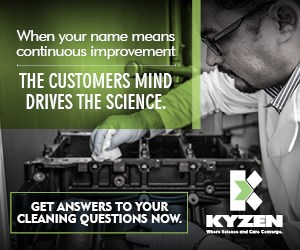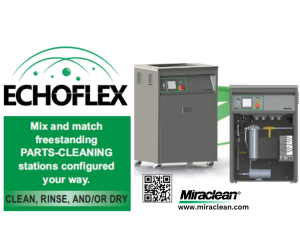Mechanical Cleaning Effectiveness
We are coating nuts and fasteners with nickel alloys for corrosion resistance. We currently do mechanical cleaning before electrochemical cleaning but would like to eliminate this mechanical cleaning, as the system is not efficient. Could you give us information on a new process?
Q. We are coating nuts and fasteners with nickel alloys for corrosion resistance. We currently do mechanical cleaning before electrochemical cleaning but would like to eliminate this mechanical cleaning, as the system is not efficient. Could you give us information on a new process? —J.H.
A. It is not clear from your question why your mechanical cleaning process is inefficient, however, I would venture to guess that since you are performing an electrochemical cleaning process, the mechanical cleaning is not being done to remove oxides or scale. If you are attempting to degrease your parts, a mechanical cleaning process would not be effective. A chemical cleaning process such as a solvent or aqueous detergent would be advisable prior to entering the electrocleaning process. Since the electrocleaning is also an aqueous process, an aqueous pre-cleaning followed by thorough rinsing would be significantly more efficient than the mechanical cleaning process.
Related Content
-
Solvent Versus Aqueous: Busting the Myths
Is aqueous cleaning “greener” than solvent cleaning? Is solvent a more effective cleaner than aqueous? These and many other questions are answered here to debunk the misconceptions that many manufacturers have held onto for years.
-
Pretreatment of Black Oxide
Having issues achieving a consistent color with the application of black oxide? Start by looking at your pretreatment. Connor Callais of Hubbard-Hall offers advice for troubleshooting your black oxide process.
-
Zinc Phosphate: Questions and Answers
Our experts share specific questions about zinc phosphate and pretreatment













